Pittsburgh Chess Club Championship 2013, Round 5: Surprised at move 4 of the opening!
Feb 14, 2013 · 7 minute read · CommentschessPittsburghPittsburgh Chess Club
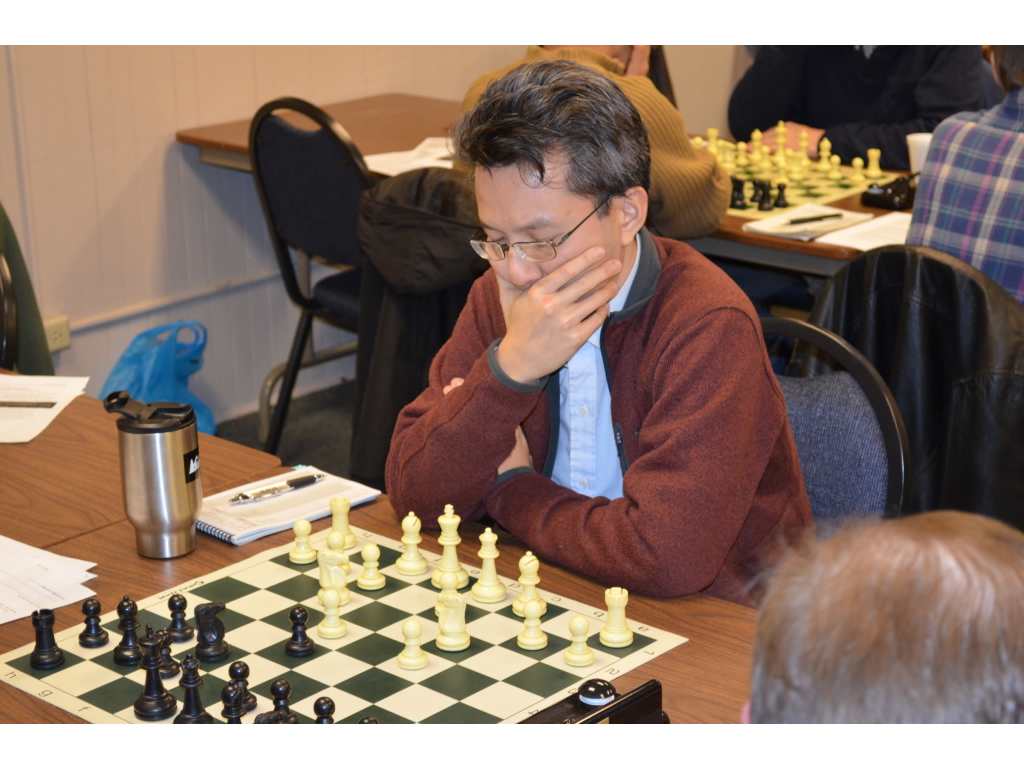
Franklin in deep throught after move 4
Round 5 of the annual Pittsburgh Chess Club Championship involved a very unusual (for me) situation: being surprised at move 4 out of the opening! (Amusingly, Kurt was taking a bunch of photos at the time and happened to get a photo of me being surprised, and later sent it to me.)
I coped well and played what I thought to be perhaps my cleanest game yet in this tournament.
I report on the psychology of how to deal with opening surprises, and other turning points in the game.
My complete annotated game
At your convenience, you can enjoy playing over the game with my annotations, including diagrams.
Preparation
As I mentioned after last week’s game, for this week I was paired against Expert Richard Edahl, whom I had never played against before, so I had nothing special prepared against him.
Furthermore, I was occupied with a personal emergency (Abby broke her foot late last night, so we spent two hours at the emergency room) that had me taking the day off work and not knowing for sure whether I was going to even make it to the game (we spent another two hours in the morning at the hospital for more X-rays and a plan for recovery). I managed to get done what I needed to do and arrive at the club for the game.
Overview of my game
The opening
Richard as Black played the first moves in the opening very quickly, then spent two minutes on his fourth move, playing a move, e5, that I had never seen before or considered in this opening, and rose and walked away from the board:
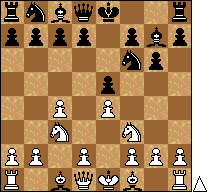
e5
So what should one do when encountering a totally unexpected move in the opening? There are only a few possible explanations for an unexpected move:
- it is a known good move, and I just have a bad memory or incomplete theoretical study of the opening
- it is a theoretical novelty that improves on previous play
- it is a bad move, and that’s why I have never seen it before
In this case, since the “new” move was at move 4, not deep in some obscure variation, I was sure that the move was a bad one. So then the question was, how to punish it? I spent 16 minutes calculating a whole series of lines in depth until I convinced myself of why the move was bad and how I could prove it no matter what my opponent’s followup moves.
Does Black lose a Pawn?
The first thing to note is that Black does not lose the unprotected e5 Pawn to Nxe5, because there is, at least, the discovered attack Nxe4 that regains the Pawn. However, just because Black regains a Pawn does not mean that the position is then equal. I quickly concluded that if Black played Nxe4, I could force Black to accept a clearly inferior position by blocking up his Bishop and weakening his King side. (This is in fact what happened in the game.)
However, I had to consider the possibility that Black could try to regain the Pawn a different way, with Qe7. Here, I had to find out why this move had to be bad (given my assumption that e5 in the first place was bad). Surely, if Black can regain the Pawn by chasing White’s Knight away, the position would be equal?
It took a while for me to find and verify the refutation of Qe7, which in fact does not regain the Pawn. The trick is the sacrificial pin Bg5 threatening Nd5:
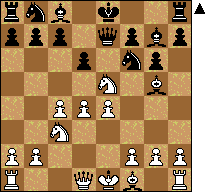
So I offer this as an example of thinking a long time about a possible game continuation that did not take place, but could have, and therefore had to be considered.
The game continuation
After Black played Nxe4, I forced the following position, clearly favorable to White:
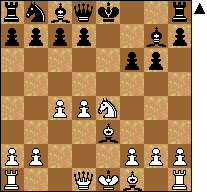
Forced line after Nxe4
What next? I decided to keep my options open and possibly aim to attack on the King side. Things were helped when my opponent moved his Queen away from the King side:
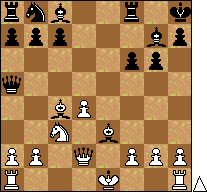
The middlegame
At this point, I had a choice: either safely castle King side with a huge positional advantage in the center and in development, or continue my King side attack plan, while setting a diabolical trap. I opted to set the trap with h4; my opponent fell into the trap by playing h5, after which my Nd5 won a Pawn, at the cost of a Queen trade and my giving up a Bishop for a Knight:
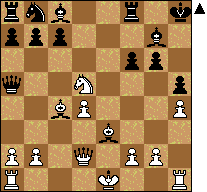
Win a Pawn
The endgame
After I grabbed the Pawn on c7, we arrived at this position:
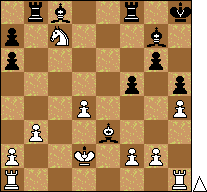
White a Pawn up
Then after some inaccurate play by Black, we arrived at an important position:
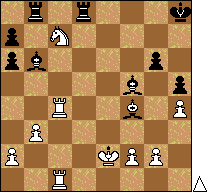
Black in trouble
Here, Nd5 was best, but instead I passively defended against Bd3+ with R1c3, after which Black could have played actively with Ba5 and caused trouble, equalizing into a drawn position. Instead, he immediately lost with Rd7??, which fell victim to Be5+ followed by Nd5 winning an exchange:
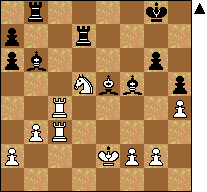
White wins the exchange
Black could have resigned, but did not; the rest of the game was anticlimactic, with Black blundering further and hanging a piece on h4 and immediately resigning:
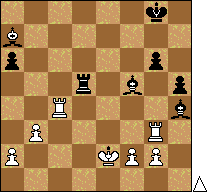
Final position
Lessons learned from my game
- Do not panic when surprised in the opening; if you have prepared well, chances are the surprising move is a bad one, so just calculate out why it is bad.
- Even in a completely winning position, one small passive move could lead to the losing side having enough active counterplay to equalize.
What next?
So after round 5, I am leading the tournament by an entire point, with a score of 5.0/6.0 going into round 6, and nobody else having 5.0 or even 4.5 points. This means that no matter what happens in round 6, I am already tied for first for the title of Pittsburgh Chess Club Champion of 2013. I could lose and tie for first; if I draw or win, I get clear first, no tie.
For round 6, I am paired against Kurt Wallnau, who won a game against me in the last Tuesday night tournament. I get Black again.
There will be some interesting psychology for our game, because just as in the last tournament, he needs to win in order to tie for first place: a draw leaves me the sole champion.
Needless to say, I am playing in round 6 for the win, not for the draw. Although I would be very happy to become the clear Pittsburgh Chess Club Champion, prizes and titles don’t actually mean that much to me. My goal remains to play the best chess I can: a correct and creative game.
As a corollary, of course, if I manage to do that, I should also as a side effect totally destroy and crush my opponent, which also happens to be fun, I have to confess. There’s no way to euphemize this fundamentally warlike nature of chess. I’m a bit uneasy about it, but part of me enjoys releasing my aggression through chess. Check out this interview with current world number one Magnus Carlsen:
Click in the video to 4:10, where he answers the interview question, “But you enjoy it when you see you opponents squirm?” He answers candidly, for all of us serious chess players:
Yes, I do. I enjoy it when I see my opponent, you know, really suffering, when he knows that I've outsmarted him. If I lose just one game, then usually, you know, I just really want to [gestures violently and angrily] get revenge.
I can’t deny this part of chess. I lost to Kurt in the last tournament, so what can I say? I’m itching to win.
By the way, check out former American prodigy Stuart Rachels’ fascinating essay on “The Reviled Art”.
Conclusion
I enjoyed thinking for myself, outside of “book”, after move 4 in the opening in this game. I feel like I’ve been playing reasonably well in this tournament, and hope to conclude it with a good game next week.